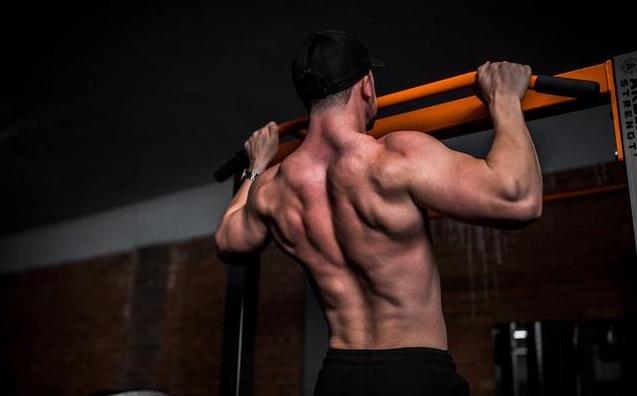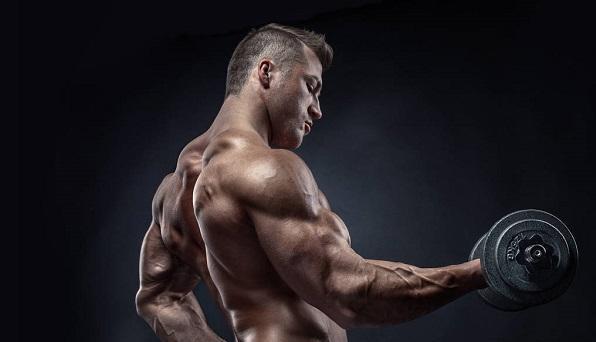Do you feel like your arm muscles aren't growing? It may be time to modify your arm workouts. Try some challenging arm exercises to improve your results.
1. Pull-ups
Pull-ups use your body weight to create one of the most challenging upper body exercises. This exercise will work your latissimus dorsi and biceps. However, during a pull-up your body bends, which creates an isometric strength training exercise that works your entire upper body.

How to perform a pull-up
1. Grasp the pull-up bar with your palms facing you. Your grip should be shoulder-width apart. 2.
2. As you exhale, pull your torso upwards until your head is near the level of the pull-up bar. Keep your elbows close to your body. 3.
3. Hold for one second. Exhale and slowly lower the torso back to the starting position.
4. Repeat the recommended number of times.
Tip: Hold your legs while performing pull-ups. A weighted belt can be used to make the exercise more challenging.
2. Diamond push-ups
Many of us already practice push-ups. Diamond push-ups use a different approach using a centred hand placement. This exercise will work your triceps and chest.

How to perform a diamond push-up
1. Place your hands on the ground on both knees. Place your hands in the middle position in a diamond shape.
2. Raise your knees to a plank position. Keep your abdominals engaged.
3. Keep your elbows bent. Lower your chest towards the floor. Push back upwards until fully stretched.
4. Repeat for the recommended number of reps.
Tip: Keep your knees on the mat throughout the exercise.
3. Supine Triceps Stretch
Supine triceps extensions increase the strength and size of the triceps and improve flexibility in the arms. Be careful not to use too much weight as this movement can injure your shoulders.

How to perform supine triceps extensions
1. Lie on your back while holding two dumbbells above your head. Bend your elbows to a 90 degree angle. Your palms should be facing in.
2. Keep your arms at 90 degrees and place them behind your head. Use your triceps to lift them back to the starting position. 3.
3. Repeat for the recommended number of reps.
4. Barbell curls
Barbell curls are ideal for people with wrist problems. The barbell can already be held in a fixed position when you need more stability with dumbbells. Barbell curls mainly work your biceps, but also activate your core.

How to do barbell curls
1. Stand up with your torso upright. Hold the barbell at shoulder width. Your palms should be facing your body. 2.
2. Keeping your upper arms stationary, bend the weight forward while contracting your biceps. Continue until the barbell is at shoulder height. Only your forearms can move. 3.
3. Slowly lower the barbell back to the starting position as you exhale.
4. Repeat for the recommended number of reps.
Tip: You can also do this exercise with dumbbells.
5. Reverse Barbell Curl
The reverse barbell curl uses the same technique as the barbell curl. The main difference is how you hold the barbell. The reverse barbell curl requires you to hold the barbell with your palms facing outwards.

How to do the Reverse Barbell Curl
1. Stand up with your torso upright. Hold the barbell at shoulder width. Your palms should be facing outwards towards your body. 2.
2. Keeping your upper arms stationary, bend the weight forward while contracting your biceps. Continue until the barbell is at shoulder height. Only your forearms can move.
3. Slowly lower the barbell back to the starting position as you exhale.
4. Repeat for the recommended number of reps.
6. Bench Press
The bench press is essential for your upper body workout. This exercise works the shoulders, back, chest and arms. Be safe when bench pressing.

How to perform the bench press
1. Lie on your back on a flat bench. The barbell should be placed on the rack above you. Grasp the barbell shoulder width apart. Lift the barbell from the rack.
2. Inhale and begin a slow descent until the barbell touches your mid-chest.
3. After a short pause, push the barbell back to the starting position as you exhale.
4. Repeat the recommended number of times. 7.
7. Overhand dumbbell backbends
The overhand dumbbell backbend is an isolation movement that targets the triceps. Good technique is essential for this exercise. Keep your upper body and upper arms stationary for best results.

How to do the backhand dumbbell backbend
1. Stand with your feet hip-width apart. Hold a dumbbell in each hand and place your arms at your sides. Your palms should be facing behind you.
2. Bend your knees and press your hips back. Lean your body forward while keeping your back flat. Your chest should be almost parallel to the floor.
3. Bend your elbows to a 90 degree angle. Your upper arms should be close to your body.
4. Inhale while extending your arms behind you. Exhale back to a 90 degree angle. 5.
5. Repeat the recommended number of times.
Tip: You can also do this exercise with one arm at a time and one leg on the bench for extra stability. The leg on the bench should be on the same side as the outstretched arm.
8. Standing dumbbell flyes
The Standing Dumbbell Fly starts in the same squat position as the Backhand Dumbbell Backbend. The difference is that you pull the dumbbells out from a perpendicular position to your body to work your shoulders and upper back.

How to perform the Standing Dumbbell Fly
1. Stand with your feet hip-width apart. Hold a dumbbell in each hand, palms facing each other. 2.
2. Bend your knees and press your hips back. Lean your body forward while keeping your back flat. Your chest should be almost parallel to the floor.
3. Keep your elbows slightly bent. Inhale and raise your arms perpendicular to your body. 4.
4. Exhale and lower your arms back to the starting position.
5. Repeat the recommended number of times.
Tip: Do not raise your hands above your shoulders as this can lead to injury.





